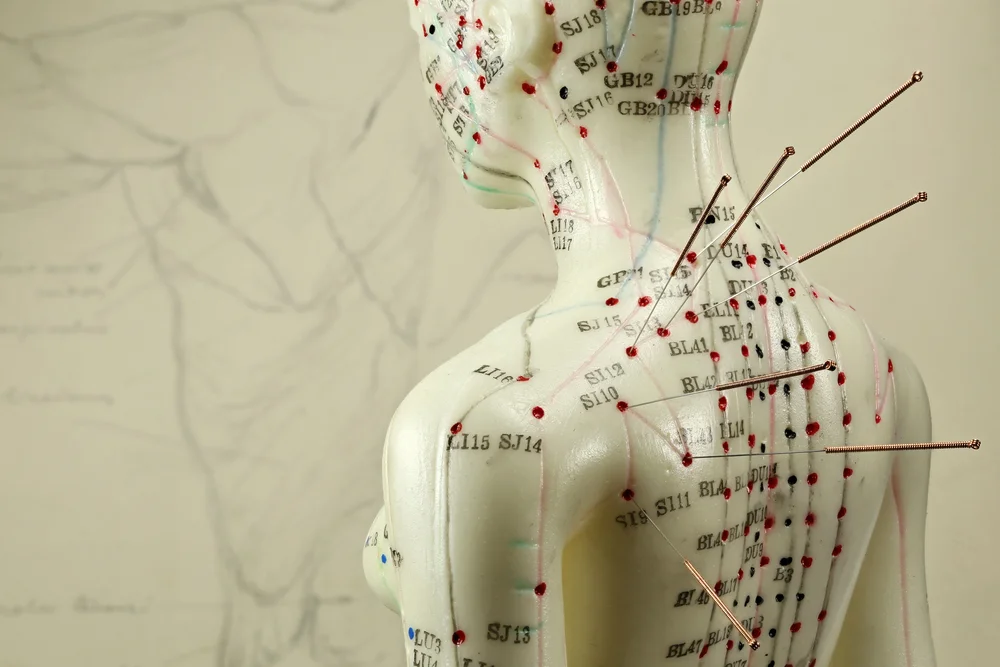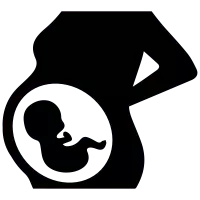High blood pressure (Hypertension) affects about one billion individuals worldwide. It’s still a challenge for medical practitioners, however, as many of those individuals suffering from primary hypertension have uncontrolled blood pressure (BP) that more often than not leads to heart disease including heart failure and myocardial infarction.
Ancient and traditional Chinese Medicine theory has proven acupuncture has the solution to lower BP. Studies now show that regular use of acupuncture helps manage blood pressure and reduces the risk of heart blockages and stroke over the longer term. Our Acupuncturists can definitely treat anyone who is thinking of trying acupuncture for high blood pressure. High blood pressure is one of Cardiovascular Disorders which is become very common in North America due to lifestyle.
Researchers from University of California-Irvine (UCI) confirm that the ancient Chinese medical technique of electroacupuncture benefits patients suffering from mild to moderate hypertension.
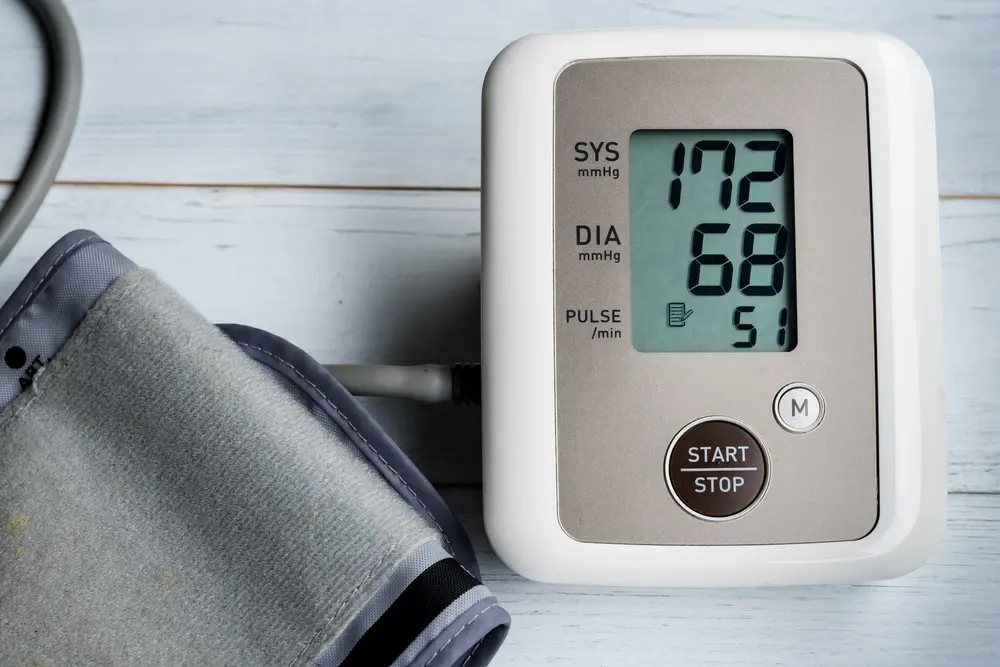
Science Confirms Electroacupuncture Can Lower High Blood Pressure
UCI conducted a trial about electroacupuncture (EA) that proved to be the first scientific confirmation of this traditional medical technique benefiting patients suffering from hypertension.
The team described electro acupuncture in the Journal of Medical Acupuncture as a technique that lowered BP in a group of hypertension patients for a total of 6 weeks.
The single-blind clinical trial with studies conducted at UCI is the first scientific finding and confirmation that the ancient Chinese medicine is beneficial for patients with mild to moderate hypertension.
In the journal Medical Acupuncture, the team describes with data the findings of a systematic review that showed how electro acupuncture without sham acupuncture lowers blood pressure for up to 6 weeks in patients undergoing treatment of hypertension.
This form of acupuncture uses electroacupuncture needles to apply electrical pulses of low intensity. These needles are inserted into the body at specific points.
Findings from these researchers and their colleagues involved in hundreds of randomized controlled trials validate facts that electroacupuncture use on a regular basis can help people manage blood pressure better and diminish the risk of getting a stroke or some other heart disease over the long term.
Senior author and cardiologist John Longhurst, who is also a professor of medicine at the University Of California (UCI), reported that almost 10 years of bench research had gone into the clinical study to record data about the effect of acupuncture on high blood pressure.
The studies indicated that 70% of the affected 33 patients from the treatment group found relief with a distinct drop in blood pressure.
Researchers also reported that these improvements remained for up to 6 weeks after the subgroup of patients from the treatment subgroup analyses had undergone the treatment of hypertension as compared to a treatment with sham acupuncture treatments.
The reduction in blood pressure on average was an appreciable 4 mmHg in the case of diastolic blood pressure and 6 to 8 mm/Hg in the case of systolic blood pressure.
The diastolic blood pressure reading was the lower number that took place when the heart rested in between beats, while the systolic blood pressure reading was the higher number recorded when the heart contracted.
Acupuncture Lowers BP By Decreasing Renin Secretion
The renin-angiotensin-aldosterone system (RAAS) is responsible for regulating repair responses, BP homeostasis and vascular injury. It is associated with inflammation, target-organ damage, and fibrosis.
Acupuncture is able to lower BP by reducing rennin activity in the body, thereby demonstrating that its ability to lower BP is the effect of a slight decrease in the secretion of renin.
Angiotensin II (Ang II), a catalyst of angiotensin and renin that converts enzyme (ACE), produces the effect of contracting blood vessels that results in increased BP.
Acupuncture has the ability to lower BP by lowering the plasma content and Angiotenin-Converting Enzyme (ACE) levels. This has been verified by a number of animal study experiments.
In summary, an acupuncture session or sessions could generate antihypertensive mechanisms that could be connected to the regulation of hormones, and production of Renin-Angiotensin-Aldosterone System (RAAS) enzymes.
Antioxidative Acupuncture Treatment Reduces Oxidative Stress
Depletion of glutathione (GSH) causes oxidative stress that leads to an elevation of BP. On the other hand, an anti-oxidative treatment reduces higher BP but does not affect the BP of healthy rats.
This concludes that oxidative stress is a mechanism that causes hypertension.
Antioxidative treatment is necessary for inhibiting ROS formation in hypertension, oxidation/antioxidant enzyme system regulation, and to improve the defense capabilities of the body.
The pathogenesis of hypertension is possible with the overproduction of reactive oxygen species (ROS) that regulate vascular tension and endothelial function.
Acupuncture needling can produce Superoxide Dismutase (SOD), which is a powerful and important antioxidant capable of removing ROS and relaxing vascular smooth muscle.
This works in the regulation of the oxidation/antioxidant enzyme system that assists in the management of hypertension.
Antihypertensive Mechanisms Of Acupuncture Helps Maintain Normal Vascular Tension
Controlled trials and animal research data have confirmed that blood vessels were damaged in primary hypertensive animal models.
This led to the belief that one of the etiologies of essential hypertension was endothelial dysfunction.
In other words, acupuncture treatment restores the equilibrium of endothelial cell-dependent contractility factor (EDCF) and endothelium-dependent relaxing factor (EDRF) in vascular endothelial cells to lower BP.
EA activates nitric oxide synthase (NOS) to the inhibition of Nox.
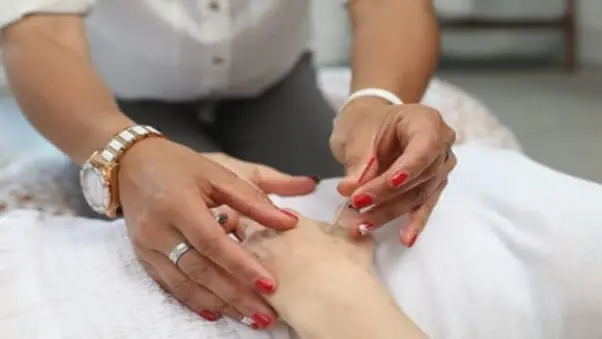
Acupuncture Reduces Inflammatory Factors
Inflammation does exist in hypertensive patients. The pathogenesis of hypertension is connected to inflammation and could interact with hypertension in a patient.
The reduction of inflammatory agents like CRP that induced unregulated ACE and Ang II receptors (AT1R) and induced unregulated adhesion molecules, interleukin-6, and TNF-α in the blood mediated the antihypertensive effect of acupuncture.
There are many studies which clearly suggests that inflammation reduces when acupuncture affects endothelial function and the RAAS system, thereby reducing inflammatory factors that result in the reduction of BP.
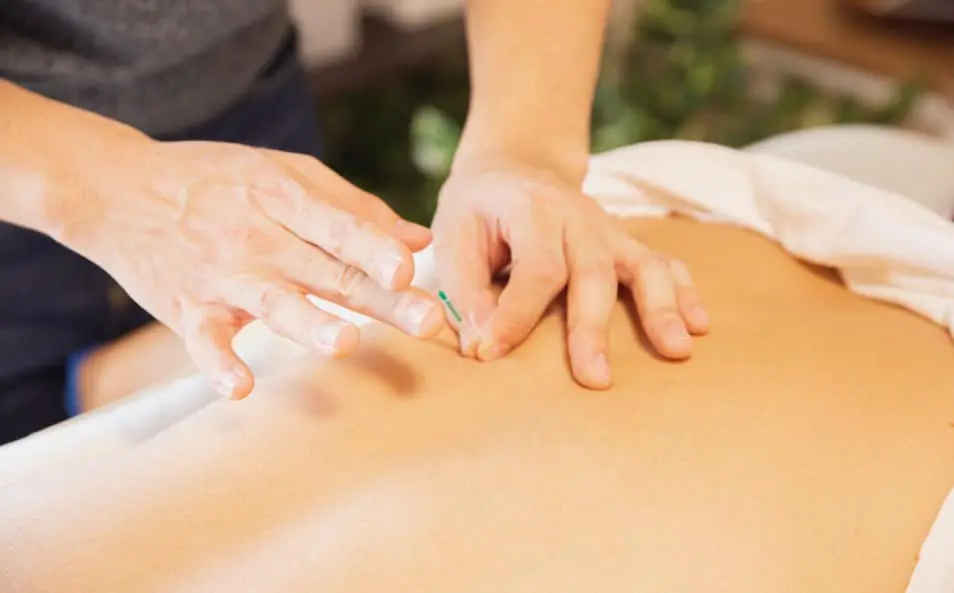
Cardiovascular Function Regulated With Acupuncture
Research shows that the neuroendocrine system is connected to how the active treatment of acupuncture produces an antihypertensive effect by stimulating the endothelial cells to treat endothelial dysfunction.
One of the targets for this antihypertensive effect is the hypothalamus.
Other factors include the activation of nitric oxide synthase (eNOS), the arcuate nucleus (ARC), the paraventricular nucleus (PVN) opioid receptors in the hypo-thalamus, and the rostral ventrolateral medulla (rVLM) in the medulla oblongata that regulate cardiovascular reflex responses.
Acupuncture Creates Antihypertensive Effect On The Brain
Imaging grades of evidence on how the brain functions show that the cingulate cortex brain function in hypertensive patients can be changed.
The changes in BP are associated with some brain regions that regulate brain glucose metabolism and sympathetic outflow.
Thus, brain research shows that acupuncture on LR 3 of spontaneously hypertensive rats (SHR) could regulate the brain stem, cortical level, the hypothalamus, sympathetic nervous system, neurons, sympathetic outflow, and other complex brain networks.
It can regulate the cardiovascular system with electrical stimulation and assist in reducing the autonomic nervous response that leads to the antihypertensive effect.
Acupuncture Reduces Metabolic Disturbances Found in Essential Or Primary Hypertension
Essential hypertension has been found to be connected with several metabolic abnormalities like reduced high-density lipoprotein, insulin resistance, elevated triglycerides, glucose intolerance, myoinositol (MI) and oleic acid (OA) (the most important metabolites that differentiate between healthy plasma and hypertensive plasma).
There is evidence to prove that acupuncture use does result in the improvement of metabolism and is likely to be one of the antihypertensive mechanisms.
Acupuncture Reduces High Blood Pressure In Patients Using Drugs in their antihypertensive medicine treatment.
A vital component for cardiovascular disease prevention is blood pressure control. The effective management, treatment, and review of hypertension is lacking with its many advances.
This article demonstrates why you cannot navigate or control blood pressure and improve health with the combined use of several drug strategies. Their chronic use results in adverse effects and diseases, as these regulators cannot control blood pressure.
A study was conducted on 10 female and 24 male patients in a group to record the blood pressure effects of acupuncture therapy on a hypertensive patient.
These patients with chronic hypertension had clinically tried antihypertensive drug therapy and medicines that ranged from beta blockers, ACE inhibitors, and diuretics for a minimum period of 24 months.
Patients in this subgroup of patients had a complaint of weakness, knee joint pain, fatigue, headache, cold hands and feet, depression, edema, sleeping problems, dizziness, and others.
They continued the unaltered use of antihypertensive drug therapy, physical activity, diet, and salt intake to improve health.
The acupuncture treatment of hypertension and its systematic review lasted for one month.
The subgroup of patients with hypertension were treated once every two days, and it took a total of 15 sessions to complete the study. They experienced significant reductions in both systolic blood pressure and diastolic blood pressure.
This proved that real acupuncture facilitates effective rates of blood pressure reduction in a patient who is on antihypertensive western medicine and reduced the patient’s complaints from these drugs.
Acupuncture and Hypertension
Frequently Asked Questions (FAQs) related to Acupuncture Treatment for High Blood Pressure
What is acupuncture treatment?
The definition of acupuncture is that it is a traditional form of Chinese treatment or traditional Chinese medicine where very thin needles are inserted into a person’s skin at various depths and at predetermined points on the body.
Research shows that Chinese acupuncture persisted in bringing relief in people suffering from elevated blood pressure within 24 hours.
What can cause high blood pressure?
This article lists out several unclear risk factors to health that can cause high blood pressure, including:
Family History: Genes play an important role in inducing BP. Members of families with a past history of high blood pressure are likely to develop high BP.
Race: People of African heritage are more likely to develop high blood pressure. This can happen at a younger age as compared to whites.
They are more likely to suffer from serious complications like heart attack, kidney failures, stroke, and more.
Age: The unclear risk of getting high BP increases with age. High blood pressure is more common in men who have not crossed 64 years of age, while women over 65 years of age sustained blood pressure that was high.
Uncontrolled Weight Gain or Obesity: Excess weight makes unwanted demands on the blood supply of the body. The tissues now need a greater supply of oxygen and nutrients. The artery walls begin to feel more pressure as the amount of blood passing through the blood vessels increases.
Tobacco Consumption: Chewing or smoking tobacco has negative primary outcomes. It produces the immediate effect of raising BP for a short period.
Certain chemicals found in tobacco have a more serious effect in that they can seriously damage the inner lining of the artery walls.
Inactivity: People who are inactive tend to develop higher heart rates. The heart begins to work harder as the heart rate increases. More force is now exerted on the arteries with each contraction.
There is also the unclear risk of being overweight when you lack physical activity.
Excess Salt With Sodium In Diet: The amount of sodium that exists in your cells is balanced by the amount of potassium you consume.
Notes from additional trials indicate that less potassium in the diet or other health conditions can lead to sodium build-up in the blood.
Stress: High stress levels tend to increase BP for a short period of time. Blood pressure increases to a greater level, if you have stress-related habits like drinking alcohol, smoking or chewing tobacco.
Excessive Alcohol Consumption: BP affects men when they consume more than two drinks a day and women when they consume more than one drink a day.
Related Chronic Conditions: Related conditions that increase the unclear risk of high blood pressure include sleep apnea, kidney disease, diabetes, and more.
Adults are more prone to showing indication of blood pressure but children may also be high risk participants.
High blood pressure in children is caused by health issues. Negative primary outcomes include medical conditions in the heart or kidneys like congestive heart failure.
Poor lifestyle habits like lack of exercise and stomach problems with unhealthy diets are relevant outcomes that cause BP in an increasing number of kids.
Pregnancy can also cause high blood pressure at times.
What are some of the health benefits of acupuncture for hypertension?
Acupuncture may benefit patients suffering from high blood pressure by bringing about drops in blood pressure and keeping it under effective control for approximately one-and-a-half months.
The ancient Chinese practice of acupuncture and traditional school of medicine offers a complementary and alternative medicine control mechanism that could treat mild to moderate hypertension in individuals or a group of people without drug control or usage.
People undergoing weeks of integrative medicine and acupuncture treatment are therefore able to lower their risk of stroke and heart disease and improve the quality of their lifestyle.
Electroacupuncture treatment can on an average bring about a drop in blood pressure of around 4 mmHg for diastolic blood pressure and between 6 – 8 mmHg for systolic blood pressure.
The group of patients that used acupuncture for electrical nerve stimulation experienced an average norepinephrine (noradrenaline) drop of 41% in the blood.
This is a hormone that is capable of constricting blood vessels, which results in increased blood sugar and increases diastolic and systolic blood pressure.
The credit goes to electroacupuncture, as without the use of sham acupuncture, it results in a 67% drop in renin, which is an enzyme released in the kidneys.
How effective is acupuncture for hypertension?
Active acupuncture is one of the most preferred forms of nonpharmacological medicines and alternative therapies for essential hypertension.
Traditional Chinese medicine is effective in blood pressure regulation and helps patients with hypertension experience a reduction of blood pressure medications types.
This traditional acupuncture treatment for hypertension also results in a medication dosage reduction.
The mechanism of acupuncture turns into an effective and approved therapy for arterial hypertension when patients experience fewer adverse effects from the blood pressure medications and drug therapy.
Can anyone who has high blood pressure receive acupuncture treatment?
It’s always good practice to consult clinical doctors about the safety and efficacy of acupuncture treatments before you seek the influence and safety of acupuncture centers.
Discuss the news and effects of acupuncture and the time you were treated to integrated antihypertensive drugs to inhibit or induce conditions that brought about decreases in blood pressure.

Can acupressure reduce blood pressure?
Manipulating the acupressure active acupoints or sets of acupoints that control blood pressure is an effective way of controlling the condition.
A Healthline’s article on the effects of active acupuncture on hypertension confirmed the news that this trial promotes blood circulation that results in better healing, and relieves muscular tension.
The five pressure points to control high BP Include:
Specific pressure point between the big toe and second toe (LV3)
Known as the LV3 or liver 3, this acupoint is found at the origin of the first two toes, i.e. the second toe and big toe (LV3). Study and search for the precise location.
Apply pressure at this point for a minute or two on a daily basis. This helps in lowering of blood pressure.
Specific pressure point between the thumb and index finger (li 4)
Called the large intestine 4 or li 4, this pressure point is found on the webbing between the thumb and index finger.
You can ease chronic pains and lower blood pressure when you search and place pressure on this webbing at the li 4.
Specific pressure point on the forearm (P6 or Nei Guan)
Also known as the inner gate, the pericardium 6 is a pressure point on the inner side of the forearm.
When you search for it, you’ll find that you arrive at this point when you move upwards about three finger-widths along the middle of your wrists.
This regulates the circulatory system that settles your BP and improves the functioning of your heart.
Specific pressure points at the back Of the neck (GB 20)
Known as the gallbladder 20 or GB 20, these are two pressure points found at the base of the skull. Make a detailed study about the pressure point. Search and apply pressure on it for a minute.
Use the thumbs of your hands on both sides of the vertebrae located at the back of your head. National and international clinical trials show that this helps in lowering blood pressure.
Specific pressure point on the top of the head (GV 20)
Called the hundred convergences or governing vessel 20, the GV 20 is a pressure point found at the top of the head. Press this point or massage it during your trials to lower blood pressure.
Can Moxibustion Lower Blood Pressure?
The conclusion of a pilot controlled randomized trial conducted in Korea showed that 3 moxibustion (Chinese medicine to apply heat and stimulate the manual acupuncture point) sessions per week for a period of 4 weeks could lower elevated blood pressure in a group of patients suffering from stage 1 hypertension or prehypertension.
Millions try the rigor of running or follow a strict guideline to sustain general health. Some try electrolytes suggested in endocrinology to restore hormonal balance. Acupuncture could work to reduce uncontrolled systolic and diastolic pressure.
The electrical therapy methods of acupuncture could work to reduce uncontrolled systolic and diastolic pressure. The duration of intervention and researches can influence and reduce the expression of stress-induced renal conditions and visceral complications from adverse drug reaction.

